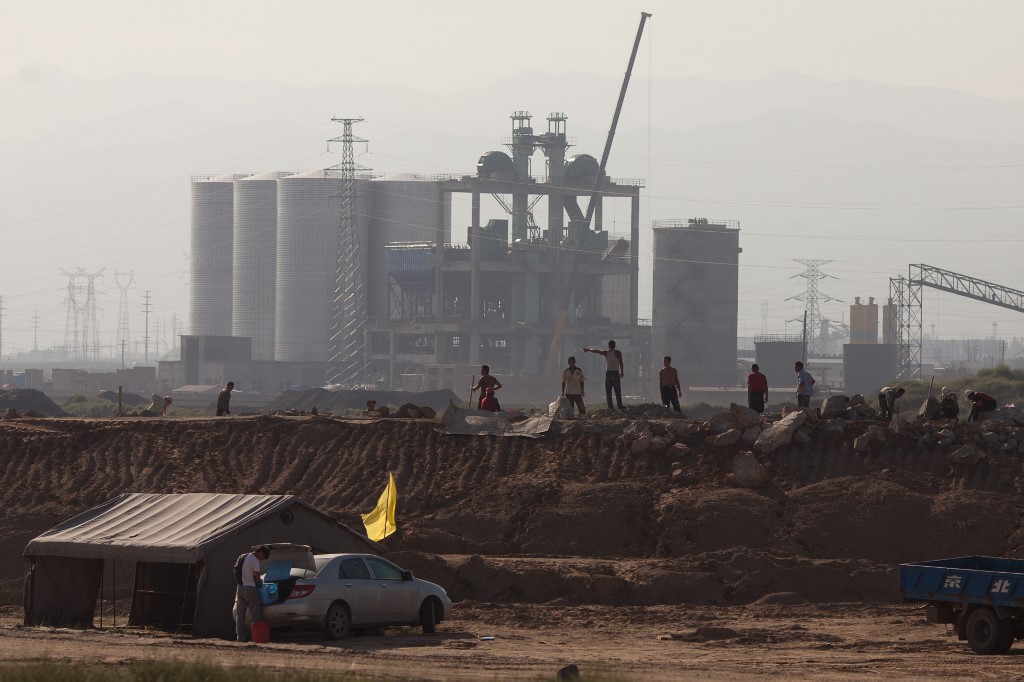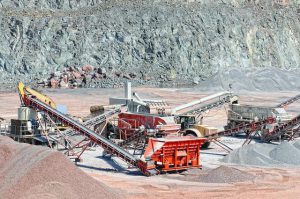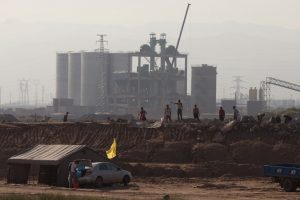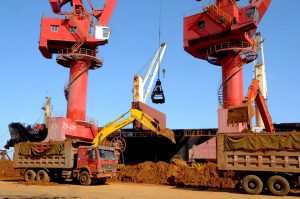(ATF) For more than 60 years, the Obo mine in Inner Mongolia has been mined for iron ore, while the rare earths found at the mine were sold at “cabbage prices,” as they were previously considered by catch. But times have changed and rare earths are now widely used in new energy, new materials, aerospace and other fields – people have woken up to their value.
China Manager magazine has reported that it did a data check and found that there are currently 38,000 companies doing work related to rare earth elements in China.
Over the past 10 years, the number of registered companies doing this work has fluctuated. In 2019, the number of new registrations was 4,818, while the number of registrations in the first three quarters of this year was 5,694, a year-on-year increase of 52%, including 2,450 that were added in the third quarter.
In terms of geographical distribution, Inner Mongolia ranks first with 24,000 companies, and most of them (23,700) are companies in Baotou, which has 62.5% of the country’s total.
Registrations in the three quarters of 2020 rose by 52%
China’s rare earth industry has two major advantages in resources and market. The Baiyun Obo Mine in Inner Mongolia Autonomous Region is recognized as the largest rare earth mine in the world.
For various reasons, the Baiyan Obo mine has been mined as iron ore for a long time, but the price of rare earth elements has “deviated” from its true value. According to business data, as of October 2020, there were 38,000 rare earth-related enterprises in China.
Rare earths are an important strategic resource as well as a non-renewable resource. The United States, Japan and other developed countries have also included rare earths as strategic mineral resources.
According to company data, the registration volume of related companies has shown a fluctuating growth trend over the past decade. After experiencing a small peak in 2011, it saw another small peak in 2016. The number of registrations reached 5,524 that year and the number of related company registrations in 2019 was 4,818, an increase of 119% from a decade ago.
In recent years, China has worked hard to promote high-quality development of its rare earth industry by strengthening resource protection and building an innovative system. In the first three quarters of this year, the number of rare earth-related companies registered was 5,694, a year-on-year increase of 52%.
Even during the epidemic, the number of related company registrations was still higher than that of the same period in 2019. The number of registrations in the third quarter reached 2,450, an increase of 76% year-on-year.
Baotou in Inner Mongolia dominates
The Baiyun Obo Mine in Inner Mongolia Autonomous Region is the only mine in the world that has all 17 rare earth elements. The rare earths in Baiyun Obo are currently generally believed to account for 83.7% of China’s reserves.
According to the data of related enterprises, Inner Mongolia is also the province with the largest number of rare earth-related enterprises in China, with a total of 24,000 firms. Among them, Baotou alone has 23,700 enterprises, accounting for the great bulk of the country’s total.
Baotou Rare Earth High-tech Zone has now become the largest in China; the rare earth industry hub essentially. In addition, Jiangsu and Guangdong ranked second and third among the provinces with 1,845 and 1,669 firms respectively.
From the perspective of registered capital, 48% of rare earth-related companies have a registered capital of less than 1 million yuan, while companies with a registered capital of more than 50 million account for just 7% of the overall total.
Industry distribution across China shows that 49% of rare earth-related companies are in wholesale and retail, while 15% are in manufacturing.
In addition, due to the country’s increasing emphasis on rare earth resources, the companies spread through scientific research and technical service industries also account for 7%, and rank as the third overall subsection.
China is boosting production in a bid to cash in on rising global demand for rare earth elements. Indeed, the sector has workers with perhaps the most experience in processing these elements anywhere in the world.























